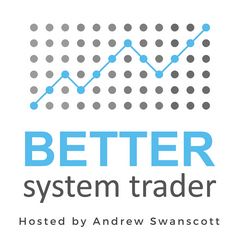How many people saw the financial crisis coming and profited from it?
2007 Christmas party at a dear Friend’s apartment in Azabu, Tokyo. He was the head of MacQuarie securities in Tokyo. Champagne was flowing and i was passably drunk. There was a bunch of Lehman, Morgan Stanley, Citi and other dudes, all smart articulate people.
They were talking about the current uncertainty saying it was an opportunity to buy on dips. I rolled in saying this would be the first time sh!t was about to flow uphill. All those delinquent loans would not end well. The two things that people buy on credit are homes and cars. If home loans turn delinquent, then the rest would follow, contagion. I happened to be tracking Japanese car manufacturers US car sales and watched them plummeting. They laughed at me and concluded that i was a drunken lunatic. Point taken…
1 year down the road, December 2008 same party, half the people. The Lehman dudes were gone or at Nomura. One of the guys ran up to me. I was about to duck and hit the floor as if chased by the police: “no
-“No i don’t do drugs anymore, no i did not do your wife, no i didn’t steal anything, you got the wrong guy” routine. He shook my hand and said:
-“You are the only one who saw it coming and had the courage to speak up. Whatever You say i do. What should i do now?”
-“Really?”, i said. “I don’t remember. I might have been seriously drunk”
-“You were a little more than tipsy, but you were funny and more importantly you were right”, he said
I had correctly predicted the crash, and was too drunk to even remember it. Sounds about right:
-“Hmm, Plausible”, i answered. “Alright, so buy when monetary authorities roll out the big guns”, i said.
-“OK, but Buy what then?”
-“Come on, do i really look like i know? Seriously? Monetary authorities are panicking. They are about to roll out the mother of all monetary bazookas. So, it does not matter what you buy, everything will rally”
-“Yeah, right. You are drunk again” and he walked away
He did not buy and I should have followed my own advice. I gave back a lot of performance in the 2009 rally. I insisted on shorting cyclical stuff when i should have shorted defensives. I was stubborn. I stopped trying to make predictions shortly thereafter.
Now, the implicit question is probably: are we in the same situation now? I don’t know and frankly, it really does not matter. I looked at my forecasting accuracy stats and concluded i should not be in the forecasting business anymore. Not encouraging for the rest of the industry considering i foresaw the crash and the ensuing recovery.
These are the main lessons:
Don’ts:
- predict the next crash: you will sell too early. It is as useful as forecasting when you are going to get sick. Only hypochondriacs check themselves in hospitals before they get sick. Don’t listen to those market hypochondriacs telling you the mother of all bear markets is around the corner.
- Focus on why: what matters more? Why you got cancer or how to cure it?
- Duration and depth: when it happened, sell-side “quants” rolled out average duration tables. On average bear markets last for xx months. If You are sick, what would you think of a doctor who would say You will have 39,8 C fever and you will heal in 3 weeks 2 days, 17 hours?
Dos:
- Recognise when it is there: build a system that tells you now it is time to sell and go short. To identify the top, use my floor ceiling method. It works objectively after the fact. Laurent Bernut’s answer to What is the most precise way to draw support and resistance lines for forex trading?
- Recognise when it is gone: Everyone got terminally beared up at the end of the bear market. They all, me included, missed the rally. Those who said they bought in March 2009 are like descendants of the Mayflower: deluded liars. To identify the bottom, use my floor ceiling method. It works objectively after the fact
- Have a bear market plan: bear markets are notoriously stressful. Not the brightest idea to devise an emergency exit plan when the building is on fire

